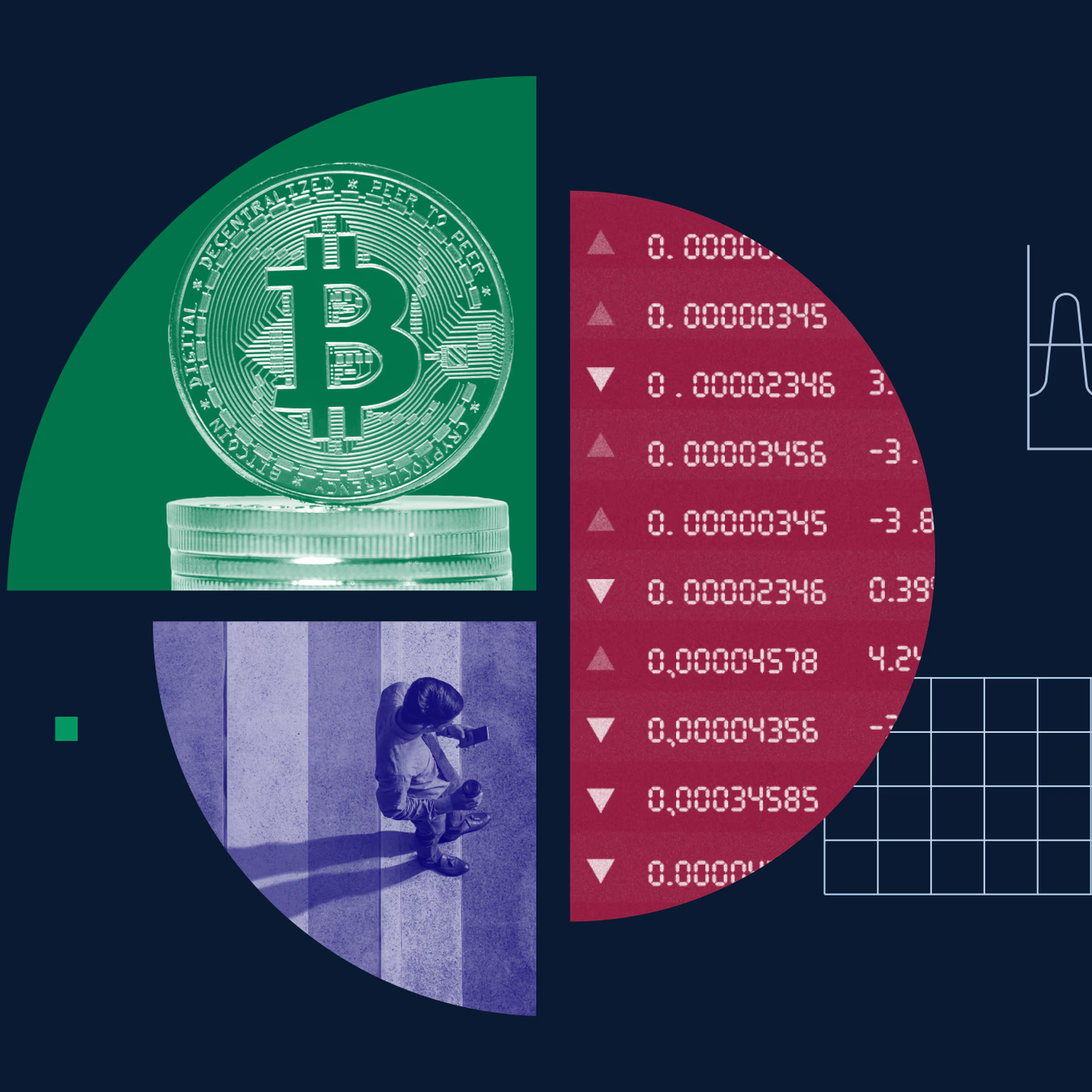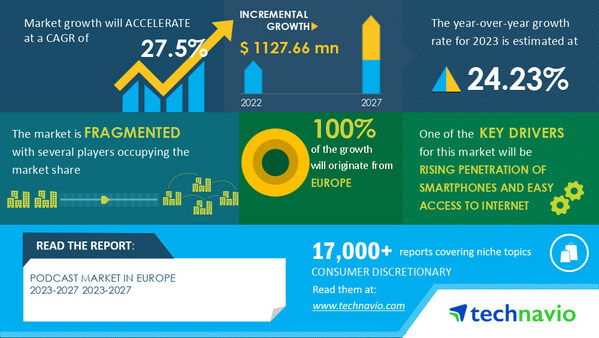Podcast Market in Europe to grow by USD 1,127.66 million from 2022 to 2027
The podcast market in Europe is estimated to grow by USD 1,127.66 million during 2023-2027, growing at a CAGR of over 27.5%. Over the past few years, podcast listening has
grown in popularity in Sweden. Between 2015 and 2020, Sweden saw a sharp increase in the number of
podcast listeners. This can be attributed to Spotify, a significant national
provider of podcasts. One of the biggest podcast streaming services in the
world right now is Spotify, which has its headquarters in Stockholm, Sweden. Furthermore, Sweden has one of the highest percentages of
listeners who are under 35. The country has a high usage of podcast apps
because young people are more familiar with using apps and subscription
services. Furthermore, COVID-19 has encouraged podcast producers to produce
more creative and entertaining podcast episodes for listeners trapped indoors
in 2020 due to lockdown restrictions and social distancing norms. However,
after 2022, when alternative sources of entertainment and information are
available outside, the nation's high demand for podcasts is likely to return to
normal.
Market Dynamics
Major Drivers & Challenges- The market is
driven by factors such as the rising penetration of smartphones and easy access
to internet, increase in number of subscriptions services, and the growth in
mobile advertisement spending. intense competition among podcast service
providers and inconsistent user preferences is hindering market growth.
Rising penetration of smartphones and easy access to internet: Users are
choosing podcasts due to the introduction of high-end smartphones and the ease
of access to the Internet. Users can easily access video and music content
while they are on the go thanks to the growing popularity of smartphones. In
addition, a lot of podcast providers are looking into using mobile platforms to
offer podcasts due to the rising number of mobile Internet subscriptions.
Furthermore, podcast listeners do not need mobile devices with large screens
and high display resolutions. The demand for smartphones in European markets
like Germany, the UK, France, the Netherlands, and Europe has
been fueled by increased Internet connectivity along with the affordability of
smartphones. The rapid advancement of wireless telecommunication standards
in Europe, including 3G, 4G, and 5G, has increased Internet bandwidth,
enabling a rise in the use of online podcast streaming services there.
Initially, only their websites were used by podcasting service providers to
offer podcasts. However, the majority of service providers are creating mobile
applications to make it easier for users to access their services. The majority
of podcasts are now accessible for downloading and streaming within mobile
applications as a result of the growing adoption of mobile devices.
Additionally, it offers simple payment methods for digital content
subscriptions, which draws in and keeps a large number of customers. As a
result, the market for podcasts in Europe will expand during the
forecast period as a result of the increasing use of smartphones and easy
access to the Internet.
Intense competition among podcast service providers and inconsistent
user preferences: The podcast industry in Europe is highly
competitive among service providers. There are many domestic and international
players on the highly fragmented regional market. The result is fierce
competition, which in turn fuels price wars among providers of mobile podcast
apps. Since cost is one of the key differentiators for consumers in European
nations, these price wars have a significant negative impact on the market's
expansion. Other factors escalating competition include shifting consumer
preferences for fresh, entertaining content. Vendors must consistently update
their playlists and other content to match the shifting consumer preferences.
Vendors must invest in new content strategies, designs, and technological
advancements in order to provide updated podcast collections. Furthermore,
technological advancements are necessary for the ongoing creation of fresh and
original content. In a fiercely competitive market, failing to adapt to users'
changing preferences could cost vendors time, money, and overall market value,
which could have an effect on how quickly the market in question grows over the
forecast period.
Key Trends- The advent of smart speakers are some of the opportunities for the
market players to grow. On the other hand, the low-profit margins of vendors
are huge challenges in front of the industry.
Advent of smart speakers: Advanced streaming features are
available on SONOS and Samsung smart speakers. With the multi-room listening
feature, these speakers enable people to listen to podcasts throughout the
house, and they can be managed using iOS and Android apps on a mobile device.
Users of these speakers can voice-control audio content changes thanks to voice
access, another feature. Users can easily play podcasts with the assistance of
such features by accessing their podcast libraries. For example, the HomePod
smart speaker from Apple has music commands that are specifically made to work
with a monthly Apple Music subscription. Users are able to use Siri to play
podcasts or BeatsOne radio. Some makers of smart speakers are concentrating on
diversifying their product lineups by releasing new models. As an illustration,
Sony Corporation. The SRS-RA3000 from (Sony) was introduced in Europe.
Technological advancements by consumer electronics producers are encouraging
for the European podcast market.
































Leave A Comment